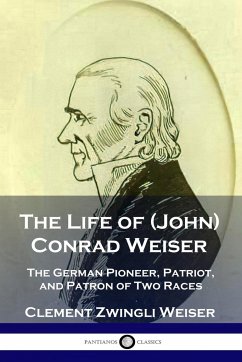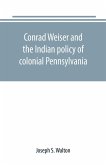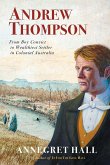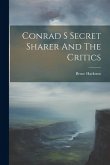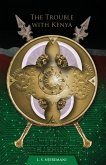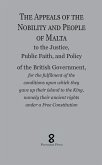John Conrad Weiser was among very few colonial settlers to achieve fluency in Native American languages, working for decades as an interpreter and peacemaker between European settlers and native tribes. The services rendered by Conrad Weiser were immensely important to the colonists of North America. He spent time living with the Maqua tribe, learning their customs and culture, and achieving supreme command of their language. When disputes arose, Weiser was called upon - on several occasions, his mediation and diplomacy prevented disagreements from descending into violence. In maturity, he served as Superintendent of the Indian Bureau; an agency which promoted peaceful cooperation between Native Americans and white Europeans. This biography charts Weiser's humble beginnings in Germany, his boyhood emigration to America, and his first communications and residence with the Maqua. His greatest successes as interpreter and promoter of peaceful understanding are related in detail. Strongly revered for decades after his death in 1760, George Washington himself revisited Weiser's gravesite in 1793 to remember his contributions. Weiser remains a pivotal figure in the history of colonial America, and his house in Womelsdorf, Pennsylvania is today a museum dedicated to study of the era. The author of this biography, Clement Zwingli Weiser, was a descendent keen on family research, who lived at the turn of the 20th century.

